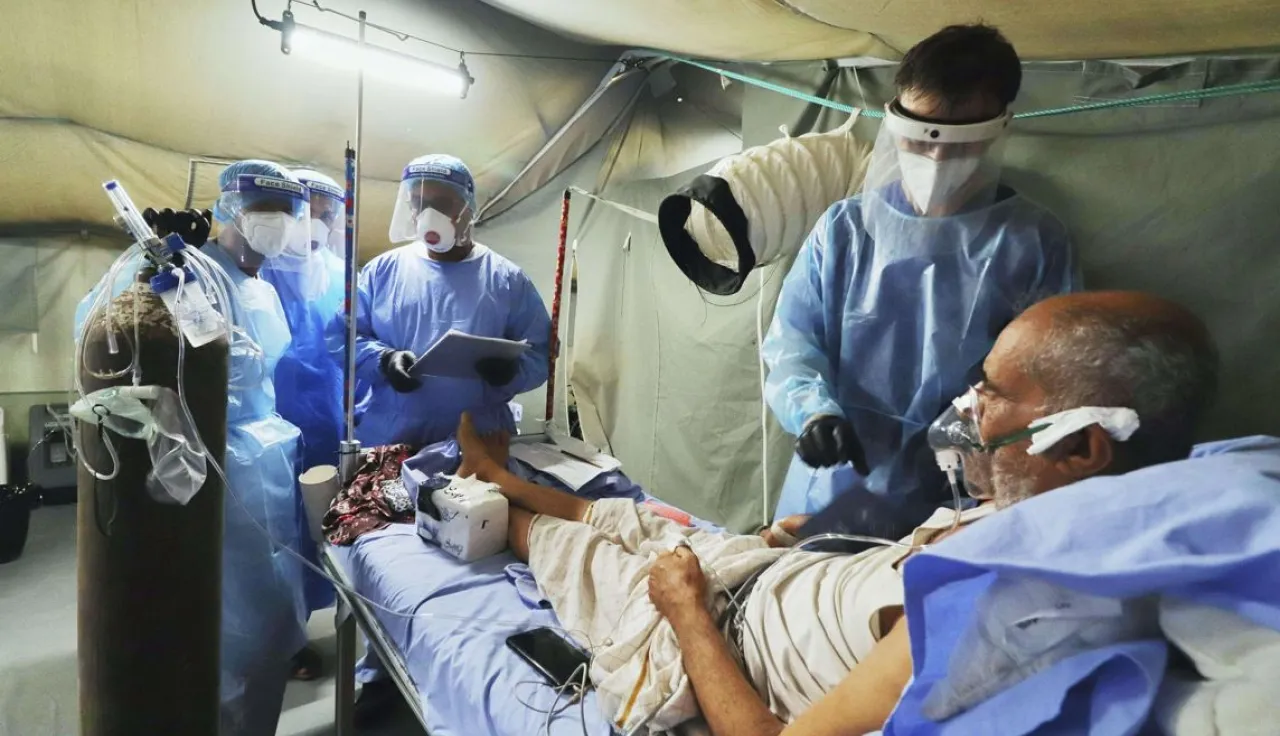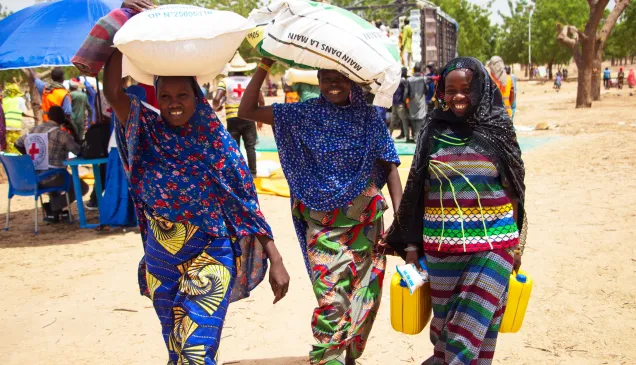Vaccine inequity impacts us all. Omicron highlights how vulnerable we all are when large parts of the world aren't vaccinated. Vaccinating the tens of millions of people living in conflict zones and other hard-to-reach areas is an absolute necessity if we are to resolve the COVID-19 pandemic.
Only a small sliver of vaccines has so far reached conflict zones, where families and entire communities often live without access to basic health care services. The ICRC estimates that more than 100 million people now live in areas under full or fluid control of non-state armed groups, often leaving communities out of reach of vaccination campaigns run by ministries of health.
How do we reach them? How do we ensure they are not left out of vaccine efforts, and thus potentially exposed to new COVID variants? It must be through a global, decisive and collective effort.
The ICRC's role in this complex task is to support health authorities and Red Cross or Red Crescent National Societies in the implementation of national vaccination plans. The ICRC also facilitates vaccinations in last-mile areas by helping gain access across frontlines through its neutral, humanitarian work, and by helping with the logistics of transport and cold chains.
Armed conflicts are unpredictable. Infrastructure and health systems are often weakened and in a bad shape. Negotiations with armed groups can be time consuming and sensitive. Vaccinating populations in these areas is difficult and delicate. It is, however, necessary.
Vaccination rates in countries experiencing conflict are disturbingly low. In Ethiopia, South Sudan and Yemen around 1.2 per cent of the population is fully vaccinated. Somalia is at 3.5 per cent, while Syria is at 4 per cent. That compares to a fully vaccinated rate of 43 per cent globally, according to figures from Our World In Data.
Omicron's fast-moving effect on the world shows how important it is to increase vaccination rates everywhere to reduce the risk to health workers and populations and the potential emergence of additional variants of concern. Vaccinating people in conflict zones is a necessary step to finding a way out of the pandemic. We must also vaccinate detainees and people migrating to new locations.
Examples of ICRC's recent work:
- In Colombia, the ICRC is supporting mobile teams from the Ministry of Health by helping to gain access and transporting vaccines to hard-to-reach areas experiencing conflict.
- In Indonesia, the ICRC works with the Indonesian Red Cross Society to support vaccination teams in remote and sensitive areas of the country's east.
- In Mozambique, the ICRC is facilitating the transportation of vaccines and Ministry of Health vaccination teams in three conflict-affected districts.
- In Ukraine, the ICRC has supported the strengthening of health infrastructure to provide vaccinations to communities in eastern Ukraine, including those affected by conflict.
For more information or to request an interview with Ms. Martinez, please contact Jason Straziuso,
at jstraziuso@icrc.org or +41 79 949 3512.




